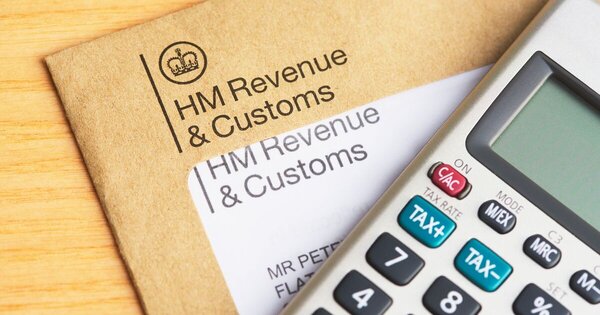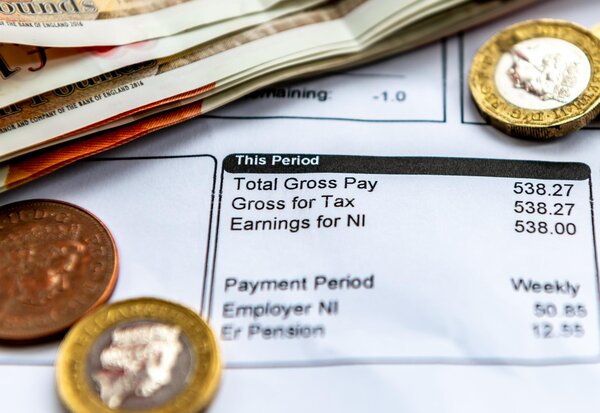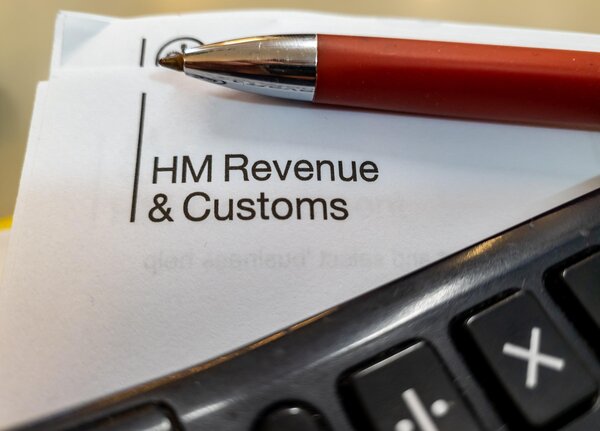Let’s Break This Down Together...
Unsure whether you’re considered a UK tax resident while freelancing across borders?
Understanding UK tax residency rules is crucial when it comes to knowing where and how much tax you need to pay. With day-counting rules, ties to the UK, and international income at play, it can feel like trying to solve a puzzle without the box.
But don’t worry! This guide will walk you through everything, how residency is determined, what it means for your taxes, and how to avoid paying twice when working internationally. Ready to make sense of it all? Let’s get started.
Determining your tax residency status as a UK freelancer impacts everything from your tax rates to reporting requirements. The Statutory Residence Test (SRT) is the cornerstone of establishing your UK tax position.
International freelancers face unique challenges with potential double taxation. Remote working has made residency status more complex but also created new opportunities.

UK Tax Residency Rules for Freelancers: Why Does It Matter?
Your tax residency determines which country has the right to tax your worldwide income. For freelancers who work across borders, getting this wrong can mean paying too much tax or facing penalties.
UK tax residency isn’t just about where you live. It’s about your connections to the UK and how much time you spend here. If you are resident in the UK, you may need to pay taxes on your worldwide income.
Unlike employment, freelancing gives you flexibility in where you work. However, working from a foreign country can affect your tax residency and obligations.
The difference between being resident in the UK or not determines where you pay taxes and how much you owe.
Introduction to Tax Residency
Tax residency is a fundamental concept in the UK tax system, shaping how much tax you need to pay and where you pay it. For self employed professionals, freelancers, and digital nomads, understanding your tax residence status is crucial, especially if you earn income from both UK and foreign sources.
In the UK, your tax residence determines whether you pay tax on your worldwide income or just your UK income. UK tax residents are required to pay tax on all their global earnings, while non residents are only taxed on income arising in the UK.
Knowing your tax residency status helps you plan your finances, avoid unexpected tax bills, and stay compliant with UK tax rules. Whether you’re self employed, running a business, or working remotely, it’s essential to understand how tax residency affects your income and tax obligations.
How UK Tax Residency Rules Work for Freelancers
The Statutory Residence Test uses three main tests to determine your status: automatic overseas tests, automatic UK tests, and the sufficient ties test.
Day counting is crucial, if you spend 183 or more days in the UK in a tax year, you’re automatically UK resident. No arguments, no exceptions. However, if you spend fewer days in the UK, you may avoid UK residency and its associated tax obligations.
For freelancers who travel frequently, the sufficient ties test becomes important. Your “ties” to the UK affect how many days you can spend here before becoming resident. Spending fewer days in the UK can help freelancers avoid becoming UK tax residents.
Digital nomad freelancers need to be especially careful. Working remotely from different countries can create a complex tax situation.
The midnight rule is key – you’re counted as being in the UK for a day if you’re here at midnight. There are some exceptions for people in transit.
I once forgot to track a late-night arrival into Heathrow and spent an unexpected “tax day” in the UK. That single day pushed me over a threshold that affected my entire tax position that year.
In cases of dual residency, international tax treaties use tie breaker rules to determine which country has taxing rights.

Determining Tax Residency: Key Criteria and Tests
Figuring out if you’re a UK tax resident involves more than just counting the days you spend in the country. The UK uses the Statutory Residence Test (SRT) to decide your residency status for tax purposes.
This test has three main parts: the Automatic Overseas Test (which can show you’re not a UK tax resident), the Automatic UK Test (which can confirm you are a UK tax resident), and the Sufficient Ties Test (which looks at your connections to the UK, such as family, work, and accommodation).
Your residency status depends on a combination of these factors, including how many days you spend in the UK, your ties to the country, and whether you have foreign income.
Keeping accurate records of your days in the UK and your connections is essential for proving your tax residence status. HMRC offers online tools to help you check your residency status and understand your tax obligations, making it easier to stay on top of your tax responsibilities and avoid costly mistakes.
Sole Trader Tax Obligations in the UK
If you’re a sole trader in the UK, you have specific tax obligations to meet each year. You must register for Self Assessment with HMRC and file a self assessment tax return, reporting your business profits and any other income.
As a sole trader, you’ll pay income tax on your profits and are also responsible for Class 2 and Class 4 national insurance contributions. It’s vital to keep accurate records of your income and business expenses, including invoices and receipts, for at least five years.
These records help you claim tax deductions and ensure your tax return is correct. Using HMRC’s online services can simplify the process of filing your tax return and paying your tax bill.
Understanding your tax obligations as a sole trader helps you avoid penalties, manage your cash flow, and make the most of available tax reliefs. Staying organised with your records and deadlines is key to running a successful self employed business in the UK.
Split-Year Treatment for Mobile Freelancers
Normally tax residency covers a full tax year, but split-year treatment may apply when you’re leaving or arriving in the UK mid-year.
This means part of the year you’re taxed as a UK resident, and part as a non-resident. This potentially saves you tax if you move abroad. If you live abroad for part of the year, split-year treatment may apply to your tax residency.
There are eight specific scenarios that qualify for split-year treatment. Starting full-time work overseas is one common example.
You need to apply for split-year treatment on your tax return. It’s not automatic, and you’ll need evidence to back up your claim.

Non-Dom Status: A Possible Advantage
If you're UK resident but have your permanent home elsewhere, you might benefit from non-dom status. This could allow you to use the "remittance basis" of taxation.
Under the remittance basis, foreign income is only taxed if you bring it to the UK. This can be advantageous for international freelancers.
After living in the UK for seven years, you'll need to pay an annual charge to keep using the remittance basis. This starts at £30,000.
Be aware that recent changes have reduced the benefits of non-dom status. This is especially true for long-term UK residents.
Avoiding Double Taxation as an International Freelancer
The UK has tax treaties with over 130 countries to prevent you paying tax twice on the same income. These are known as double taxation agreements or double taxation treaties, and they determine which country has primary taxing rights.
Foreign Tax Credit Relief allows you to offset overseas tax against your UK liability on the same income. Tax credits are a key mechanism provided by double taxation agreements to avoid double taxation, offering relief or exemptions through specific treaty provisions. This can significantly reduce your overall tax burden.
Digital nomad freelancers must track which country has primary taxing rights. This is typically based on where they perform the work.
Some countries offer special visa schemes with tax benefits for remote workers. These are worth researching if you’re location-flexible.
Practical Record-Keeping for Residency Purposes
Keep a day-by-day log of your location with supporting evidence. Boarding passes, hotel receipts and bank statements can all help prove your whereabouts.
Document your "midnight rule" compliance carefully. Where you were at the end of each day matters most for UK tax purposes.
Track work activities in each location throughout the year. The number of UK workdays affects your "work tie" for the sufficient ties test.
Consider using digital tools that automatically log your location. Manual tracking is prone to errors that could cost you dearly at tax time.
Tax Filing Requirements Based on Residency Status
UK residents must report worldwide income on Self Assessment tax returns. This includes submitting an annual tax return and a self assessment return to HMRC. Non-residents only pay UK tax on UK-source income.
The UK tax year runs April 6 to April 5 – different from many other countries. This can be confusing for international freelancers.
Foreign income reporting requires additional supplementary pages on your tax return. All taxable income, including rental income from UK or foreign properties, must be declared. You may need to convert currencies using HMRC’s approved exchange rates.
Missing filing deadlines carries penalties regardless of your residency status. Keep track of key dates to avoid unnecessary charges.

Final Thoughts
UK tax residency rules create a complex but navigable landscape for freelancers working internationally. With proper planning, you can manage your affairs efficiently.
Understanding your status early helps avoid unexpected tax bills and penalties. Proper planning can lead to legitimate tax savings.
Digital nomad freelancers particularly need to stay informed as tax rules evolve. Both UK and international regulations continue to adapt to remote work trends.
Always consider professional advice for your specific circumstances. Residency status can have far-reaching implications beyond just income tax.











